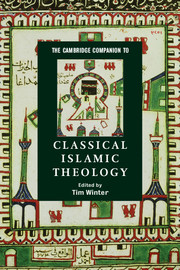2 - The early creed
from Part I: - Historical perspectives
Published online by Cambridge University Press: 28 June 2008
Summary
BACKGROUND
The intellectual milieu of seventh-century Mecca and Medina into which the Qur'an came was rustic, and bore no resemblance to the environment of the urbanised, far more literate societies of the organised empires of the Romans and Persians to the north. While literacy was nowhere widespread in early medieval times, it seems to have been especially lacking in the Arabian peninsula, where the prevalent Arabic language appears not to have possessed a written literature before the seventh century. On the other hand, the groundwork for Islam had apparently been laid orally, for the Qur'an presupposes a society of a certain sophistication of thought. Part of this sophistication was a familiarity with monotheism (Qur'an 29:61, 63; 31:25; 39:38; 43:9, 87), despite the well-entrenched and confident paganism native to the Arabs. While Arab familiarity with the monotheistic idea is unmistakably the fruit of centuries-old contact with Judaism, Christianity and Zoroastrianism, Arab isolation persisted, and knowledge of the abstract thought of the neighbouring high cultures was limited.
Such a situation of illiteracy and isolation provided the opportunity for the emergence of a new religious movement, precisely because the Arabs were not already committed to one of the existing literate traditions. This opportunity was realised when the Prophet Muhammad began to proclaim a new message from God, first privately at Mecca, and then publicly in that city, and finally from 622 in Medina.
- Type
- Chapter
- Information
- The Cambridge Companion to Classical Islamic Theology , pp. 33 - 54Publisher: Cambridge University PressPrint publication year: 2008
- 13
- Cited by

